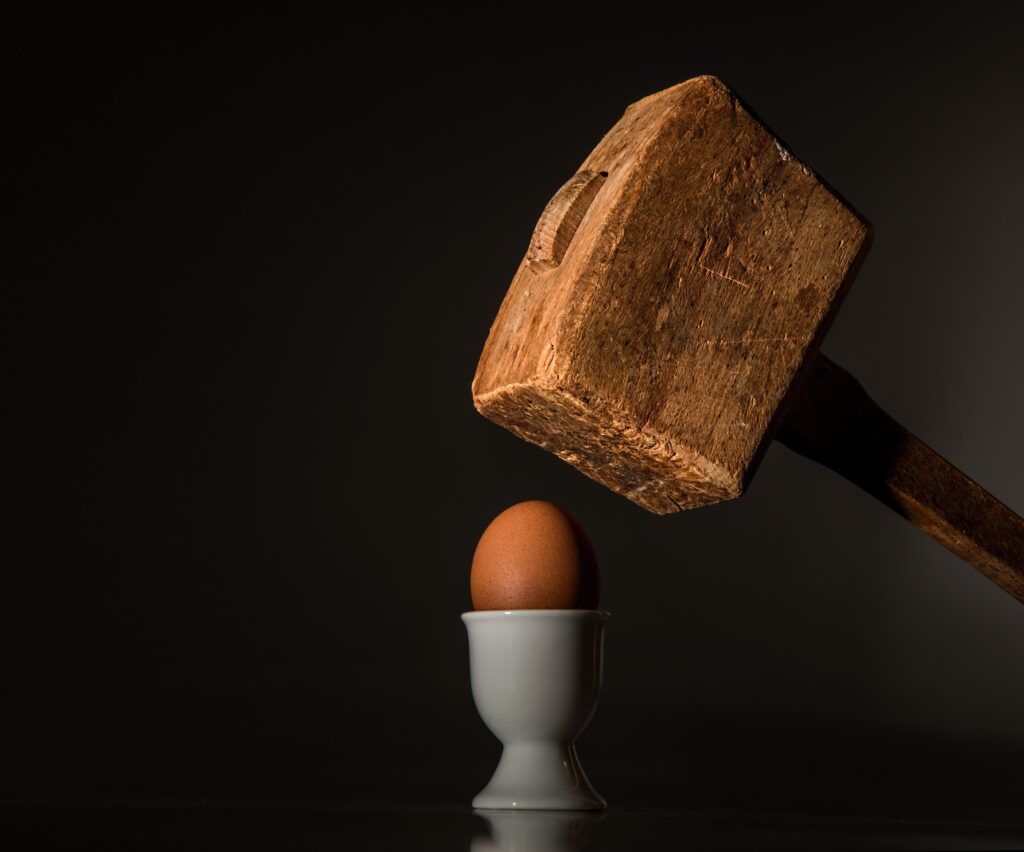Eggs are an exceptionally nutritious food, brimming with health benefits. A large egg typically weighs about 56 grams and consists of distinct parts, each serving specific nutritional purposes. The shell, weighing approximately 5 grams, acts as a protective barrier for the egg’s interior. The egg white, averaging 31 grams, is rich in protein and water, while the yolk, around 20 grams, houses most healthy fats and essential nutrients.
A detailed breakdown reveals that an egg contains about 6.6 grams of high-quality protein and 3 grams of unsaturated fat, and is an excellent source of nine essential amino acids. These amino acids are vital in building and repairing proteins in our bodies, supporting muscle growth and various physiological functions. Additionally, eggs are loaded with essential vitamins and minerals, including B vitamins, vitamin D, iron, and phosphorus, all of which are crucial for overall well-being.
A noteworthy aspect of eggs is their content of plant-derived antioxidants, such as lutein and zeaxanthin. These compounds have garnered scientific interest due to their potential cancer-preventive properties. Moreover, recent research indicates that the cholesterol found in eggs is absorbed by the body in minimal amounts. This led the American Heart Association to revise its guidelines, suggesting that consuming one egg per day may be safe and even beneficial to the American diet.
However, despite the numerous nutritional advantages, it is essential to be mindful of proper storage and handling of eggs. They can be potential carriers of salmonella—a bacterium responsible for food poisoning—since they are expelled through the same passage as hen feces during laying. Consequently, eggshells may harbor bacteria. Additionally, because eggshells are porous, fecal contamination can occur through their surfaces, even post-laying. Therefore, adopting good hygiene practices and ensuring eggs are stored correctly in the refrigerator until consumption is crucial for safety.
A chicken is just an egg’s way of making another egg.
-Samuel butler
Jump To Section
History
You can also watch this and other exclusive GA Originals on YouTube.
The history of the egg is a captivating narrative that dates back to the origins of life on Earth. For millennia, eggs have served as a crucial source of nutrients and energy for various species, including humans. In many cultures worldwide, they represent rebirth, fertility, and new beginnings. The culinary use of eggs spans thousands of years, with archaeological evidence revealing that ancient civilizations, such as the Egyptians and Romans, integrated eggs into their diets.
Birds, reptiles, and certain fish lay eggs as part of their reproductive cycles, with each type exhibiting unique traits that suit their respective environments. For instance, aquatic birds lay eggs that are more water-resistant, while terrestrial species produce harder shells to defend against predators. Beyond their reproductive role, eggs hold deep cultural significance. Many traditions feature eggs in festivals and celebrations, like Easter, where they are painted and hidden as symbols of resurrection and life’s renewal.
In the realm of art, eggs have inspired countless works, appearing in paintings, sculptures, and crafts throughout history. The domestication of birds, particularly chickens, has led to mass egg production, making this food staple both affordable and widely consumed. Today, the egg industry plays a vital role in modern agriculture, employing diverse practices from traditional farming to industrial methods to meet global demand. However, large-scale production raises ethical and environmental concerns, igniting discussions about animal welfare and the ecological impact of intensive farming.
Thus, the egg’s narrative transcends mere sustenance, weaving together threads of biology, culture, and human evolution. From its wild origins to contemporary tables, the egg remains a powerful symbol of life and adaptability, reflecting the intricate connections between humanity and the natural world.
Tips to Tell if Eggs Are Bad

For those who cook regularly, encountering the unwelcome surprise of a spoiled egg can be quite disheartening—especially when you’re in the midst of a recipe or preparing a special meal. Fortunately, straightforward tests and practical tips can help you avoid this misfortune. It all begins when you purchase your eggs. A simple visual inspection can prevent you from buying low-quality products. Look for eggs with clean shells that show no visible cracks; this often indicates proper handling and storage.
Once you’ve bought them, if you remain unsure about their freshness, you can easily test them at home. Fill a glass with enough water to submerge an egg completely and then gently place the egg in. If it sinks and rests at the bottom, you can be confident that it’s fresh. Conversely, if the egg floats, it’s likely old or spoiled. As eggs age, the air pocket inside—located at the larger end—expands, causing them to float.
When cracking the egg, observe a protein called chalaza, which resembles strings and helps keep the yolk centered. A prominent, opaque chalaza indicates freshness. A high-quality, fresh egg will have a firm white and a plump, centered yolk, which are crucial for the quality of your dish.
Another factor to consider is how easily eggs peel after cooking. Fresh eggs tend to cling more to the shell, making peeling more difficult. If you find an egg that peels away effortlessly, it may not be as fresh as you’d prefer. Occasionally, you might notice small blood spots on the yolks. While some view these as defects, they result from tiny ruptures in blood vessels during the laying process and are harmless.
To ensure optimal quality, take the time to crack eggs individually into a bowl before adding them to your recipe. This allows you to assess freshness and discard any that are not in good condition. After all, a spoiled egg can spoil your entire dish, affecting both flavor and food safety. By following these straightforward tips, you’ll guarantee that the eggs in your recipes are fresh and of high quality, leading to a more enjoyable and efficient cooking experience.
Bottom Line
To determine the freshness of an egg, begin by checking the expiration date on the carton—keep in mind that eggs can still be safe to eat a few days beyond this date. A reliable method is the float test: place the egg in a bowl of water. If it sinks and lies flat on the bottom, it’s fresh; if it stands upright, it may still be edible but is not at its best; if it floats, it’s spoiled.
The smell test is also helpful; fresh eggs have a neutral odor, whereas a strong smell indicates spoilage. Additionally, inspect the egg white, which should be thick and gel-like, and the yolk, which should be firm. To preserve their freshness, store eggs in the refrigerator. By following these simple tips, you can easily assess whether an egg is still good to eat.
Did you like this article?
I hope this article has helped you understand when an egg has gone bad. To learn more, take a look at Is It Safe To Wash Meat Before Cooking?
Leave a comment below and share our content. Help our community grow by following our social media on Spotify, Instagram, Facebook, YouTube, and TikTok. And stay up to date with the news from the world of Gastronomy.
Don’t forget to tag @gastrovinoacademy on Instagram and hashtag it #gastrovinoacademy.
Cheers 🍷


